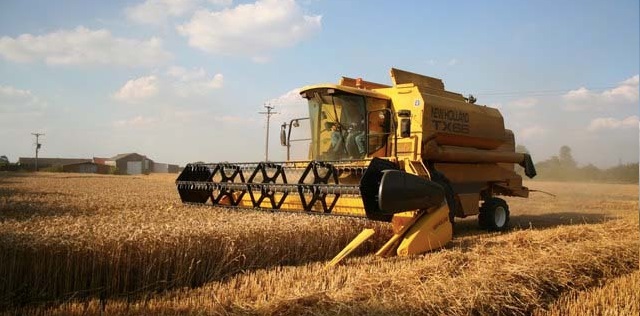
A new report hopes to answer some of the questions farmers have surrounding the proposed referendum on whether the UK should stay in the EU and the consequences if we opt to leave.
While the report gives some guidance, National Farmers’ Union (NFU) President Meurig Raymond says they cannot give their position on whether it would be better to be ‘in’ or ‘out’ of the EU because as don’t yet know what Prime Minister David Cameron has planned.
A referendum of the issue was part of the Conservatives’ election manifesto and David Cameron is now moving forward with plans to hold the public vote by the end of 2017.
Uncertainty on what would happen if we left
Mr Raymond says, though, it is uncertain what the relationship would be between farmers across Europe if the UK opted out of the EU.
But he hopes this new report can answer some questions farmers might have.
The report looks at both sides of the debate and gives answers to vital questions on a number of key issues surrounding the debate.
The European Union is a big export market for a number of farmers. In 2014, for example, 38% of British-produced lamb was exported to the EU.
Questions to be answered
The report covers a number of areas including:
• Would farmers still have access to the EU if we left?
• The future of the Common Agricultural Policy in the UK
• Would the Government be able to guarantee fair competition for farmers and a level playing field on which to compete?
• What is being done to make sure European decision makers put agriculture at the forefront of global competitiveness?
• Access to non-UK born labour
While the report offers some answers on these and other questions, the Union will continue to talk with its members on the issue so it can best represent the many and varied interests of British farmers throughout the national debate.
George Chichester, Partner in Strutt & Parker’s Farming department, said: “There is virtually no doubt that there will be a referendum on whether or not Britain remains in the EU at some point this year.
"There are still far too many questions regarding how this would affect the UK farming industry.
"We await the outcome of David Cameron’s negotiations on the four main points which he has identified as essential for change if we remain in, and more clarity from all parties as to how they would support agriculture and the environment if we pull out. Until these details are known one cannot make a firm decision, but farmers will be mindful of the huge importance of the EU to their marketplace – for both exports and imports.”
Farm incomes
A UK exit from the EU could have a significant negative impact on farm incomes and land values, according to a report by Savills.
The referendum on membership of the European Union (EU) presents the greatest uncertainty for UK real estate in 2016/17, according to Savills; the outcome having potential implications for all three sectors. The prospects for a pre-referendum investment slow down may well depend on how close polling companies believe the outcome will be.
Existing pressure on farm incomes is unlikely to lead to a significant increase in the supply of farmland unless there is a threat to direct farm subsidies from a UK exit from the EU or a significant negative change to the capital tax treatment of farmland.
Rural estates remain attractive to high net worth buyers as safe shelters for wealth that they can also enjoy; they are also partially protected from commodity price volatility having a diverse asset base and multiple sources of income generation.
Mark Ridley, Chief Executive Officer, Savills UK and Europe, says: “Next year UK real estate will move into a new stage of the property cycle and will also face a number of ‘known unknowns’: an in-out EU referendum within the next 18 months, new regulation coming into force, and a potential end to more than six years of record-low interest rates, resulting in a very different year to 2015.
"As we’re unlikely to see a repeat of the strong capital growth witnessed recently, we’re predicting that investors’ attention will turn to maximising rental growth and income returns.
"There are still numerous opportunities across all the sectors we’ve explored, however, particularly outside the capital, and we expect to see the shift towards investment in the regions that began this year to strengthen in 2016."
In the short-term, demand for farmland will be more localised. Non-farmer demand, and the expected growth in prime country residential markets over the next five years, will continue to support prices especially on residential and amenity-type farms, but investor demand may weaken as the performance of alternative assets improves.
In the light of recent market evidence and the short- to medium-term expectations for commodity prices and therefore farm profitability, we have downgraded our forecasts for the next five years: we expect values to be much more varied than those of the past five years.
This market will last three to four years until commodity prices start to recover, following stronger global growth. However, the fundamental factors driving UK farmland value growth remain. Supply is historically low, the product is finite, and competing land uses and ownership motives will all support farmland value growth in the long-term.
The report can be read online here.
